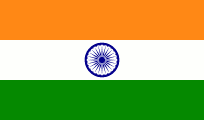Published 2023-12-12 09:37:15


Industry: General
In recent years, the healthcare sector has witnessed a paradigm shift in the way services are delivered and managed. One of the transformative elements contributing to this change is the increasing prominence of remote management. Leveraging technology and virtual solutions, remote management has emerged as a pivotal force in healthcare administration. This article delves into the opportunities that remote management presents in the healthcare sector, examining the roles, benefits, challenges, and future trends that professionals in this field may encounter.
Remote management encompasses a spectrum of roles within the healthcare sector. Telehealth and virtual care coordination have become integral, providing patients with improved accessibility to healthcare services. Remote patient monitoring and data management allow healthcare professionals to gather real-time information, enhancing the quality of care. Administrative roles in remote healthcare operations involve overseeing the efficient functioning of virtual healthcare systems and ensuring seamless communication between various stakeholders.
The adoption of remote management in healthcare brings forth a myriad of benefits. Improved accessibility to healthcare services is a cornerstone, especially for individuals in remote or underserved areas. Virtual solutions enhance the efficiency of healthcare administration, reducing waiting times and streamlining processes. Cost-effectiveness and resource optimization further underscore the advantages, making healthcare services more sustainable and accessible to a broader demographic.
While remote management presents promising opportunities, it is not without its challenges. Data security and privacy concerns are paramount, requiring robust measures to safeguard sensitive patient information. The necessity for robust technological infrastructure poses a challenge, particularly in regions where connectivity may be a limitation. Navigating regulatory and compliance considerations is crucial to ensure that remote healthcare practices adhere to industry standards.
The landscape of remote healthcare management is continually evolving, thanks to emerging technologies. Artificial Intelligence (AI) applications play a pivotal role in data analysis, diagnostics, and personalized treatment plans. The Internet of Things (IoT) in healthcare enables the seamless integration of medical devices and wearables, providing real-time health data. Cloud-based solutions and platforms facilitate secure data storage, accessibility, and collaboration among healthcare professionals.
Professionals seeking opportunities in remote healthcare management must possess a unique skill set. Strong communication and problem-solving skills are essential, given the virtual nature of interactions. Educational requirements may vary, but a background in healthcare administration, information technology, or a related field is often beneficial. Continuous learning and staying updated on industry trends are critical as technology evolves.
Examining successful case studies in remote healthcare management offers valuable insights. Organizations implementing remote solutions have witnessed improvements in patient outcomes and increased efficiency in healthcare operations. Learning from these examples can provide guidance for professionals looking to navigate and contribute to the field of remote healthcare management.
The exploration of remote management opportunities in the healthcare sector unveils a landscape of innovation, efficiency, and improved patient care. As technology continues to reshape the industry, professionals equipped with the right skills and mindset will play a pivotal role in driving positive change. The transformative potential of remote healthcare management is not only a reflection of the present but a glimpse into the future of healthcare delivery.
Comments